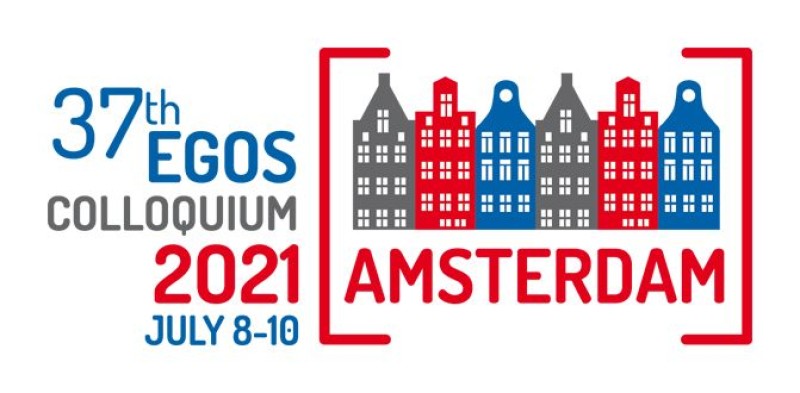Sub-theme 42: Mental Health Conditions at Work: Managing the Self, the Body, and Organizational Life for Social Inclusion ---> CANCELLED!
Call for Papers
In recent years, mental health has been securing a lot more attention than in previous periods of history partly because
of an actual growth in MHCs arising from the intensification and precarity of work in our increasingly competitive contemporary
society (Boxall & Macky, 2014; Burchell, 1994; Green, 2006). However, a greater awareness has been generated by events,
such as the annual Mental Health Awareness Week (1st week of October), established in 1990 by the U.S. Congress,
and by the annual Mental Health Day on the 10th October, established by “Mind” (https://www.mind.org.uk/about-us/whatwe-do/),
as also “Mental Health Europe” that campaigns to keep mental health on the European agenda (see https://www.mhe-sme.org).
Despite this public attention, mental health conditions (MHCs) and their management or self management have
remained marginal to Organizational Studies. Given the theme of social inclusion for the 37th EGOS Colloquium,
it is appropriate to pursue a more intensive programme of research and theorizing about mental health in relation to organization
and work. For whether it is in schools, colleges, universities, the arts, entertainment, sport, corporate business or other
work organizations, MHCs are manifesting themselves exponentially either through individual self-revelation or through particular
incidents. This is occurring for a number of reasons: prevailing laws prohibiting discrimination on grounds other than merit
(although we have to admit to not being uncritical of meritocratic legitimations of inequality); the changing cultural
context rendering inequality of treatment taboo; and finally, perhaps the reduction in social stigma generated by certain
high-profile people (e.g., Beyonce, Stephen Fry, Lady Gaga, Prince Harry, Emma Stone, Prince William) having gone public concerning
their own MHCs. Even so, despite a less hostile climate, discrimination can and does continue in the absence of a more universal
disclosure that is much more difficult for those whose identity does not enjoy the accolades of celebrity status. Furthermore,
for those working in mundane roles, disclosure is often both a legal requirement and a condition for workplace accommodations
(Equality Act, 2010) but many paradoxically, prefer to keep their condition quiet due to fear of discrimination (CIPD, 2016).
This sub-theme will seek to attract a range of cross-cultural papers that address the conditions and consequences
of organizational and management issues related to (not) caring for and/or managing those that experience MHCs. It will also
include a consideration of the conditions and consequences of self-managing MHCs (Elraz, 2018) as well as the shift from institutional-based
mental healthcare to community-based services (Samele et al., 2013). It is open to a wide range of theoretical perspectives
and different empirical foci. However, the organizers would encourage papers seeking to understand the problems through theorizing
social inclusion, the body, power, identity, insecurity and inequality, and drawing on qualitative methodologies, although
these should not be seen as excluding other theoretical or methodological approaches given the theme of this conference. Some
questions to consider are:
How does knowledge of MHCs and their management in organizations arise?
What are the conditions and consequences of self-managing MHCs and what forms does such self-management take? How might it contribute (or not) to experiences of isolation, exclusion, or debates on workplace performance?
What are the conditions and processes that underpin the organizing of inclusion and exclusion of MHCs? In what ways is the inclusion/exclusion of MHCs variable as between different conditions and different kinds of organization?
What are the barriers/enablers to social inclusivity for those that experience MHCs in organizations?
Could embodied, and perhaps autoethnographic, methods provide a rounded understanding of the conditions and consequences of MHCs?
What are the power dynamics that come into play when dealing with/managing MHCs at work?
What are the implications of the management or mismanagement of MHCs for issues of inequality and insecurity?
How do MHCs and their management relate to predominant discourses of exclusion/ inclusion in society and at the workplace?
What are the conditions that encourage individuals/organizations to promote mental health inclusion? How do these relate to individual decisions over disclosure?
How do MHCs and their management relate to the study of identities in organizations? What embodied practices come into play during this process?
How do current mechanisms of inclusion/exclusion of MHCs in organizations relate to legal, political, welfare or other debates on discrimination and diversity?
How do current mechanisms of inclusion/exclusion of MHCs in organizations operate with contemporary debates related to workplace performance and/or performativity?
References
- Boxall, P., & Macky, K. (2014): “High-involvement work processes, work intensification and employee well-being.” Work, Employment and Society, 28 (6), 963–984.
- Burchell, B. (1994): “The effects of labour market position, job insecurity and unemployment on psychological health.” In: D. Gallie, C. Marsh & C. Vogler (eds.): Social Change and the Experience of Unemployment. Oxford: Oxford University Press, 88–212.
- CIPD (2016): Employee Outlook – Focus on Mental Health in the Workplace, available at: https://www.cipd.co.uk/Images/employee-outlook_2016-autumn_tcm18-16797.pdf.
- Elraz, H. (2018): “Identity, mental health and work: How employees with mental health conditions recount stigma and the pejorative discourse of mental illness.” Human Relations, 71 (5), 722–741.
- Equality Act (2010): available at: https://www.legislation.gov.uk/ukpga/2010/15/contents.
- Green, F. (2006): Demanding Work: The Paradox of Job Quality in the Affluent Economy. Woodstock: Princeton University Press.
- Samele C., Frew, S., & Urquía, N. (2013): Mental Health Systems in the European Union Member States, Status of Mental Health in Populations and Benefits to be Expected from Investments into Mental Health, available at: https://ec.europa.eu/health//sites/health/files/mental_health/docs/europopp_full_en.pdf.


